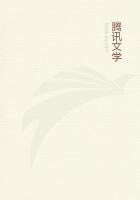KNOWLEDGE of human nature is the beginning and end of political education, but several years of arduous study in the neighborhood of Westminster led Henry Adams to think that knowledge of English human nature had little or no value outside of England. In Paris, such a habit stood in one's way; in America, it roused all the instincts of native jealousy. The English mind was one-sided, eccentric, systematically unsystematic, and logically illogical. The less one knew of it, the better.
This heresy, which scarcely would have been allowed to penetrate a Boston mind -- it would, indeed, have been shut out by instinct as a rather foolish exaggeration -- rested on an experience which Henry Adams gravely thought he had a right to think conclusive -- for him. That it should be conclusive for any one else never occurred to him, since he had no thought of educating anybody else. For him -- alone -- the less English education he got, the better!
For several years, under the keenest incitement to watchfulness, he observed the English mind in contact with itself and other minds. Especially with the American the contact was interesting because the limits and defects of the American mind were one of the favorite topics of the European. From the old-world point of view, the American had no mind; he had an economic thinking-machine which could work only on a fixed line. The American mind exasperated the European as a buzz-saw might exasperate a pine forest.
The English mind disliked the French mind because it was antagonistic, unreasonable, perhaps hostile, but recognized it as at least a thought.
The American mind was not a thought at all; it was a convention, superficial, narrow, and ignorant; a mere cutting instrument, practical, economical, sharp, and direct.
The English themselves hardly conceived that their mind was either economical, sharp, or direct; but the defect that most struck an American was its enormous waste in eccentricity. Americans needed and used their whole energy, and applied it with close economy; but English society was eccentric by law and for sake of the eccentricity itself.
The commonest phrase overheard at an English club or dinner-table was that So-and-So "is quite mad." It was no offence to So-and-So; it hardly distinguished him from his fellows; and when applied to a public man, like Gladstone, it was qualified by epithets much more forcible. Eccentricity was so general as to become hereditary distinction. It made the chief charm of English society as well as its chief terror.
The American delighted in Thackeray as a satirist, but Thackeray quite justly maintained that he was not a satirist at all, and that his pictures of English society were exact and good-natured. The American, who could not believe it, fell back on Dickens, who, at all events, had the vice of exaggeration to extravagance, but Dickens's English audience thought the exaggeration rather in manner or style, than in types. Mr. Gladstone himself went to see Sothern act Dundreary, and laughed till his face was distorted -- not because Dundreary was exaggerated, but because he was ridiculously like the types that Gladstone had seen -- or might have seen -- in any club in Pall Mall. Society swarmed with exaggerated characters; it contained little else.
Often this eccentricity bore all the marks of strength; perhaps it was actual exuberance of force, a birthmark of genius. Boston thought so. The Bostonian called it national character -- native vigor -- robustness -- honesty -- courage. He respected and feared it. British self-assertion, bluff, brutal, blunt as it was, seemed to him a better and nobler thing than the acuteness of the Yankee or the polish of the Parisian. Perhaps he was right.
These questions of taste, of feeling, of inheritance, need no settlement.
Every one carries his own inch-rule of taste, and amuses himself by applying it, triumphantly, wherever he travels. Whatever others thought, the cleverest Englishmen held that the national eccentricity needed correction, and were beginning to correct it. The savage satires of Dickens and the gentler ridicule of Matthew Arnold against the British middle class were but a part of the rebellion, for the middle class were no worse than their neighbors in the eyes of an American in 1863; they were even a very little better in the sense that one could appeal to their interests, while a university man, like Gladstone, stood outside of argument. From none of them could a young American afford to borrow ideas.
The private secretary, like every other Bostonian, began by regarding British eccentricity as a force. Contact with it, in the shape of Palmerston, Russell, and Gladstone, made him hesitate; he saw his own national type -- his father, Weed, Evarts, for instance -- deal with the British, and show itself certainly not the weaker; certainly sometimes the stronger.
Biassed though he were, he could hardly be biassed to such a degree as to mistake the effects of force on others, and while -- labor as he might -- Earl Russell and his state papers seemed weak to a secretary, he could not see that they seemed strong to Russell's own followers. Russell might be dishonest or he might be merely obtuse -- the English type might be brutal or might be only stupid -- but strong, in either case, it was not, nor did it seem strong to Englishmen.
Eccentricity was not always a force; Americans were deeply interested in deciding whether it was always a weakness. Evidently, on the hustings or in Parliament, among eccentricities, eccentricity was at home; but in private society the question was not easy to answer. That English society was infinitely more amusing because of its eccentricities, no one denied.












